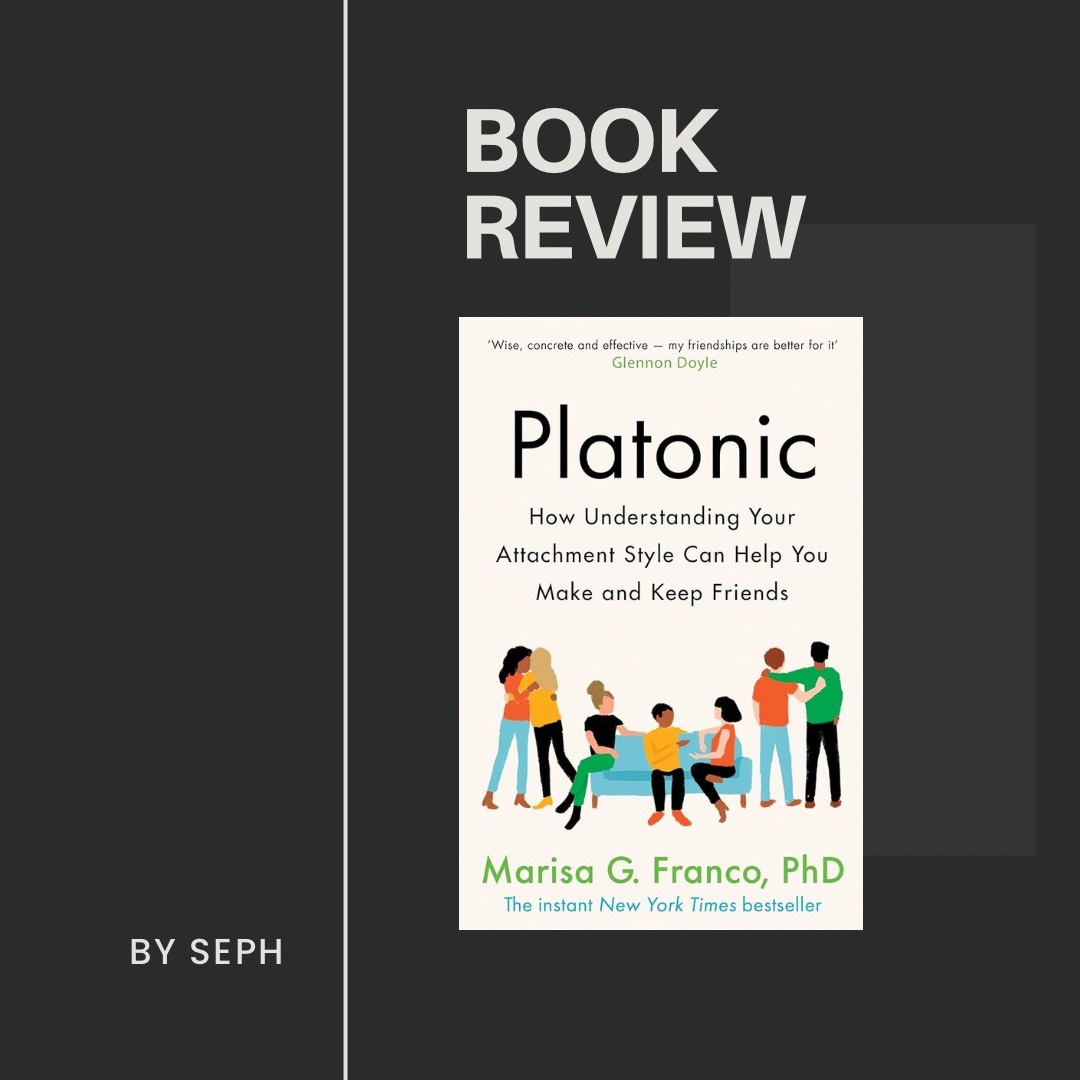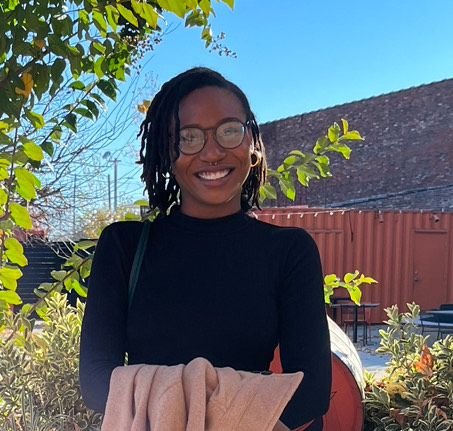Alright – so today we’ve got the honor of introducing you to Seph Chiddick. We think you’ll enjoy our conversation, we’ve shared it below.
Hi Seph, thanks for joining us today. Can you tell us a bit about who your hero is and the influence they’ve had on you?
I am a writer, so it is only fitting for my hero to also be a writer: Toni Morrison.
I have always been an avid reader; I prefer words printed on pages, painting images in my mind over reality. Reading is my favorite way to escape. I am a fantasy lover: world building, supernatural powers, paranormal beings, those are the books that I gravitate to. I thoroughly enjoy being immersed in a world where a happy ending is promised and the characters are familiar but not real. So naturally, when I read Toni Morrison for the first time I thought I didn’t like her. Turns out, I was just intimidated.
She was so raw. So honest. Her writing evoked feelings in me that I usually run from. The simplicity of her writing floored me; she was clear and concise, never boring. Her descriptions were so easy to follow, they did nothing to hide how horrific the story was. My introduction to her was Beloved and at first , I couldn’t finish it. I remember dropping the book, gasping at the images she painted in my mind, hands shaking, throat dry, chest tight knowing I would never forget that moment.
It took some time for me to revisit her work; I had to prepare myself to learn from her.
Toni Morrison published her first book, The Bluest Eye, at the age of 39, so I do not feel rushed to put anything out. This is the first lesson Toni taught me: I have time. Time to live and learn. Time to write and discard. Time to create a story that will knock the breath out of someone else decades after I write it. Today’s hustle and grind culture created this urgency in me to put something out just to be seen. But Toni’s lesson stands strong. I have time and I do not need to rush to create anything.
Toni also taught me how to look deeply at the relationships in my life, to cherish my girlhood, to revel in my Blackness. Sula is my favorite Toni Morrison book, and in my opinion, one of the most important coming-of-age novels in any Black woman’s life. Whether it was the tenderness between Baby Suggs working on Sethe’s wounds or Nell crying “we were girls” after Sula’s death, Toni taught me to pay attention to the connections in my life, to notice how they change me, how I have changed them.
Toni was an editor first and a writer later, a lesson in staying close to books and writers. The Origins of Others is lecture she did at Harvard about the importance of writing from the Black gaze and centering Black story-telling for Black readers and writers. I have heard discourse about Black writing being centered on trauma but Toni Morrison manages to tell stories of people’s lives while they deal with traumatic events. Her stories of love and loss are deeper and richer because they are familiar, because they are Black.
Toni taught me how to look at two sides of the same issue and to hold the various ways one trauma affects an entire cast. In my opinion, her work on colorism in God Help the Child is in direct conversation with her earlier work, The Bluest Eye. Toni Morrison taught me that Black stories are important. I believe that characters reflect the author’s internal struggles; characters are battling demons the author themselves deal with through their lived experiences. Everyone experiences oppression in some way, and art reflects that. Holding multiple truths is a skill, one that I am learning at Toni Morrison’s pen.
I carry her with me when I write. Toni Morrison said, “If you find a book you really want to read but it hasn’t been written yet, then you must write it.” And I plan on doing just that, in my own time.

As always, we appreciate you sharing your insights and we’ve got a few more questions for you, but before we get to all of that can you take a minute to introduce yourself and give our readers some of your back background and context?
My name is Seph. I am a Black lesbian writer who migrated from the Caribbean to the United States of America some decades ago. I have always been an avid reader, reading is my oldest hobby, and I knew early on that I wanted to be a writer. My first novel was written by hand in secondary school. It lived in this beat up old composition notebook that I passed around to the other girls in my class during and after it’s completion. It was romance, starring a young awkward girl who was on the brink of her first kiss. I was, maybe, 14 at the time. I wrote a lot as a child: I started a lot of novels, penned a few short stories and did thorough research to make sure my descriptions were just right. I wanted to be able to paint vivid pictures in my readers minds.
During college, I lost the desire to write for a living and I shifted to poetry as a means of processing my emotions. I never fully stopped reading, but my interests shifted from romance and fantasy to history and non-fiction. Naturally, my writing reflected that. I wrote essays and speeches. My research centered around the media’s effects on society instead of the difference between nymph and dryads. Poetry and short stories were my pass-times for awhile but the novel that I had been dreaming of since childhood pulled me back to a deep writing practice.
While it took some time for me to get back to writing, when I did I brought everything I learned. The first written work that I released was my podcast, Much Thoughts, available wherever you find podcasts. I wrote the outline of each episode and did the research. I compiled lists of sources and supportive media recommendations. I drafted interview questions and actually did interviews. I am extremely proud of my podcast for tackling some questions that have plagued the Black community for ages.
I compiled years of poetry into a chap-book, Gold + Honey. In it, I share pieces that speak about queerness and migration, mental illness and love. My Substack is for my book reviews: I write lengthy (often vulnerable) reflections based on books that impact me deeply.
My deepest desire for my writing is to remind everyone that their story matters. Their history, their present and their future matters. As a Black lesbian, I write primarily for Black women and queer folk. I want my readers to feel my love for Blackness and queerness equally. I hope to inspire others to think deeply about their own personal narratives and their rich family histories.

What’s a lesson you had to unlearn and what’s the backstory?
Success is really what you make it.
Like most, my initial definition of success was determined for me. The adults in my life, the insistent pressure from society, and ever growing demand for accolades built an illusion of success that I started striving for. I was not a good student, I am, after all, an excellent daydreamer. Still, I bent myself into who I hoped was successful. It was painful. I regret it.
Truthfully, I did not have a solid definition of what personal success was until my mid-to-late 20’s, well after I decided that I wanted to be a writer. At that point, I had already amassed two degrees and was pursuing a third because “all the good jobs need Master’s degrees now”. My dreams of being a writer crumbled under the pressure of having to support myself in America.
As an immigrant, I have a lot of scarcity fears and a lot of hardship financially. Still, defining success in very practical, pragmatic terms was the turning point in my life. For me, success is having a roof over my head, food in my fridge, gas in my car and the safety to daydream. Pursuing a corporate job that will drain me, require constant personal improvement and take time away from staring out of my window time is not success for me. It was hard to slow down and be honest about what I actually wanted and needed out of life. It required me to be honest with everyone around me and to say no to jobs that promised more money under the guise of harsh working conditions. Defining success for myself meant looking at how I made my money, spent my money and how much time and energy I had left over for my creative practice. I spent a few years building a life that supported my writing practice, and building the muscles needed for a writing practice.
On the other end, the pressure I feel now is internal. Defining success as having stable, safe conditions to create and write helped me build a successful life. My finances and work expectations are realistic and I am proud of the time and space I have created to be a successful writer.
Now I just have to make sure I write, haha.

For you, what’s the most rewarding aspect of being a creative?
The most rewarding part of being an artist is the knowing that, eventually, I will create.
Creativity is a part of my being, it is not just something I do. My creativity shows up in my cooking, in my hobbies, in my relationships. I created the life I live today. The art of creating is incredibly addictive. I love the process of having an idea, being inspired and then putting time, energy and hope into it. Who knows what it will be in the end, you know? There’s no telling what the outcome will actually be, but there is so much joy in knowing that something new will exist. Something that wasn’t here before will be here now.
Contact Info:
- Instagram: https://www.instagram.com/__.s.e.p.h.__/profilecard/?igsh=MmdqdWVxZ3hqaTM0
- Other: https://substack.com/@seph268?r=gn5t4&utm_campaign=profile&utm_medium=profile-page
https://shop.ingramspark.com/b/084?params=i7HNL3wvqBg5ea5qSCG0Cqu7TXNeFDy3Nk57ekdPKTI
https://queerkentucky.com/prism-the-call-for-home/



